Display videos
Yes, I'd like to see videos dispalyed.
After three years, he joined the newly promoted Rot-Weiss Essen in the Bundesliga and he became the number one in the Rückrunde but he was unable to prevent immediate relegation for the Westphalian team. He often crossed swords with Bayer 04 Leverkusen in the Regional League West and gained promotion to the Bundesliga with Rot-Weiss Essen in 1969 but was relegated again two years later. He joined relegated Kickers Offenbach in 1971 and played for the club for a season in the Regional League South before spending four years in the Bundesliga following immediate promotion.
staying up and promotion to the top flight
In 1975, at the age of 32, Fred Bockholt signed for Leverkusen. The Werkself had just been promoted to the second Bundesliga North after two years in the third tier. With his experiences and good performances, Fredy played a big part in us staying up. With the exception of a few games, he was the number one under the Bayer Cross from 1975 up to ending his playing career in 1981. The highlight in his time is promotion to the Bundesliga with Bayer 04 in 1979.
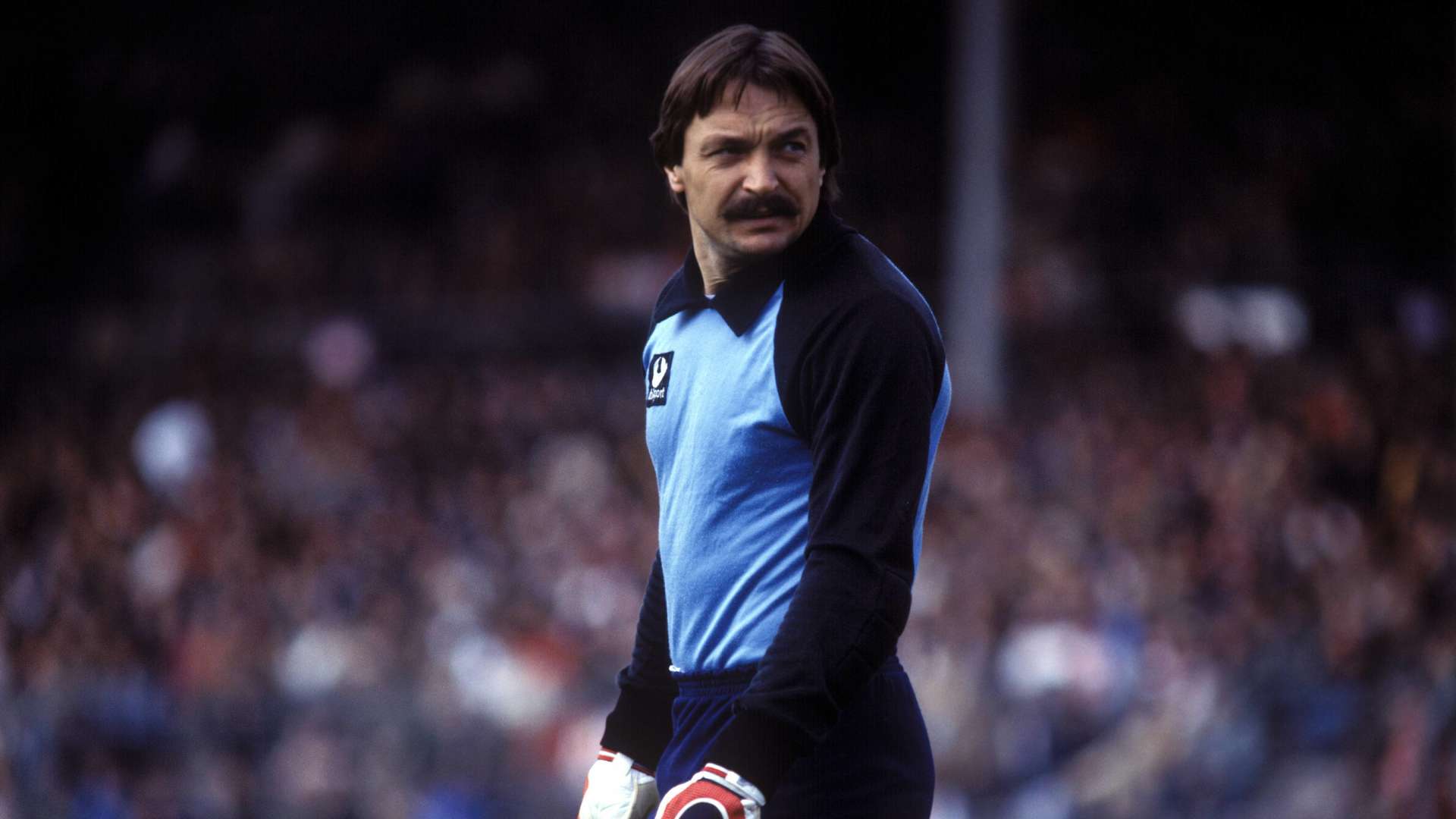

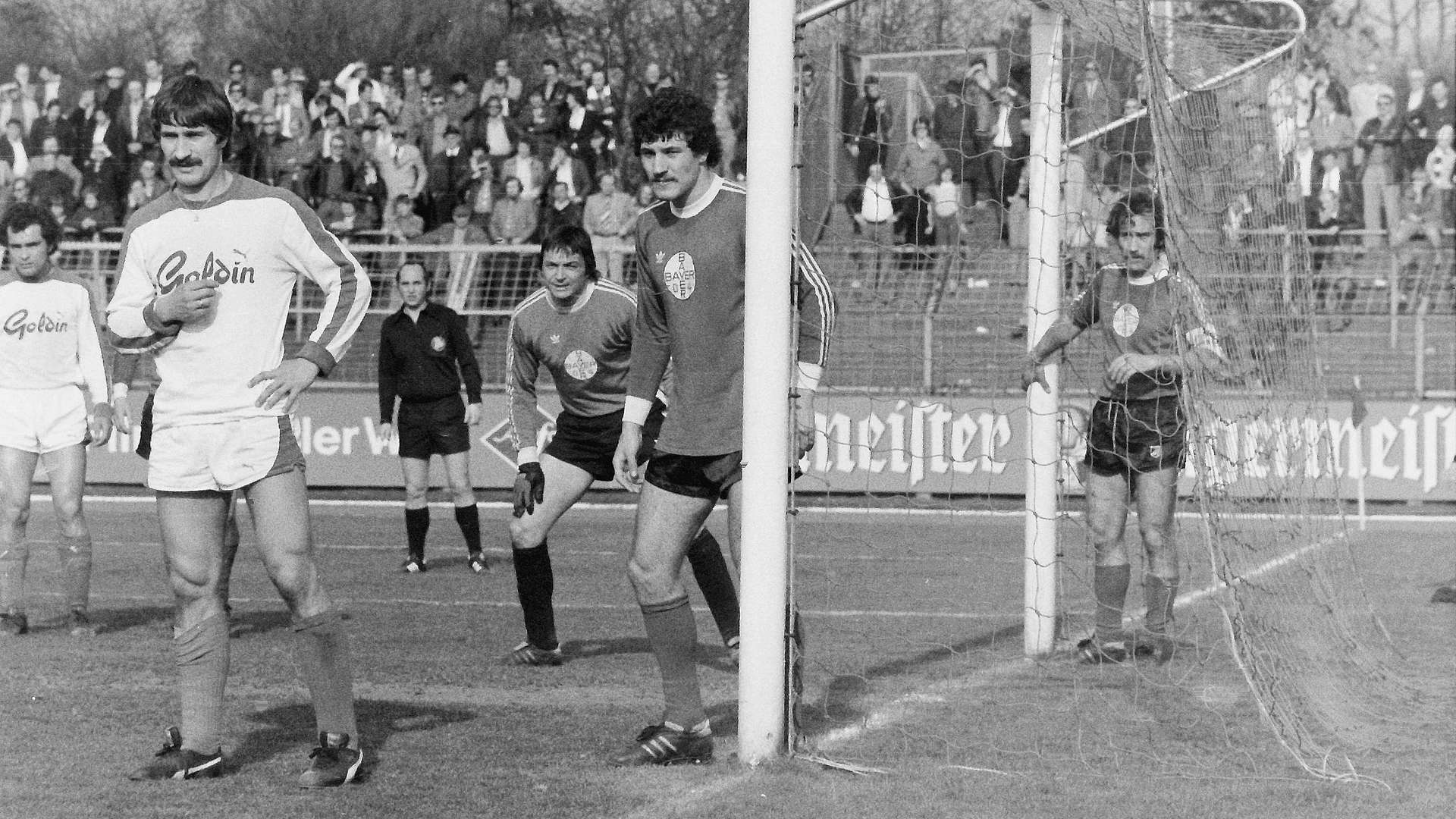
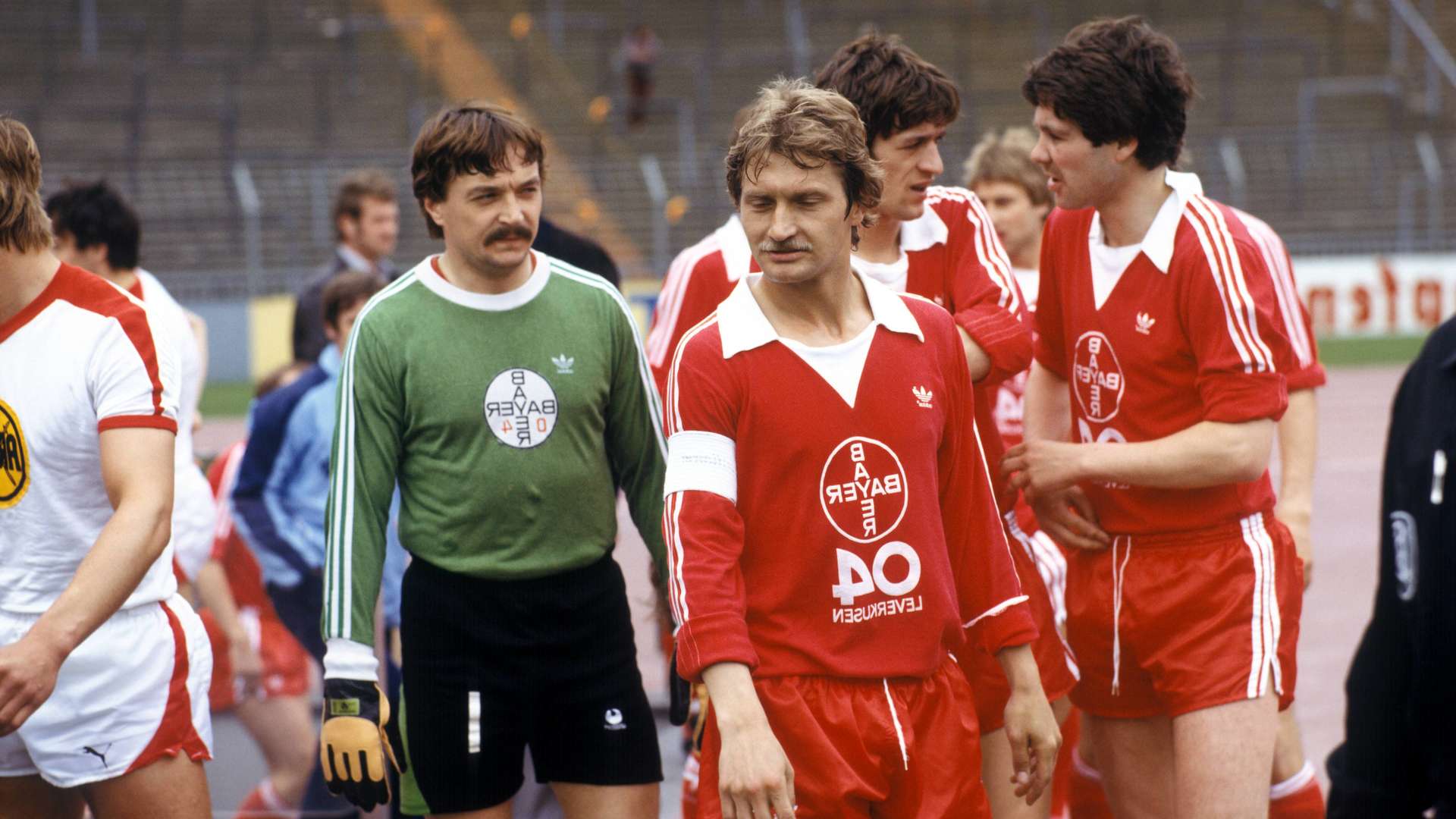
After hanging up his boots, he started working as a teacher of maths and sport at the mining college in Duisburg but continues with football as a coach. He becomes the reserve and goalkeeping coach in Leverkusen and that includes training me in my first two years at Leverkusen and he was very successful primarily on improving my technique as a goalkeeper. Later he went on to coach several amateur clubs such as Preußen Krefeld, Schwarz-Weiß Essen and Rot-Weiß Oberhausen. Due to his teaching, he never had the ambition to work with professional teams.
Dear Fredy, thank you for working with me and enjoy your 80th birthday. Many happy returns and stay fit and healthy. All the best!
Related News

Legend: Christoph Daum - The man who taught us to want
Christoph Daum was born on 24 October 1953 in Zwickau. As a child, he moved to West Germany with his mother and grew up in Duisburg. He developed a great enthusiasm for football at an early age, even though it soon became clear that his future lay less on the pitch than on the sidelines. Even at a young age, his passion for analysing, explaining and improving things became apparent.
Show more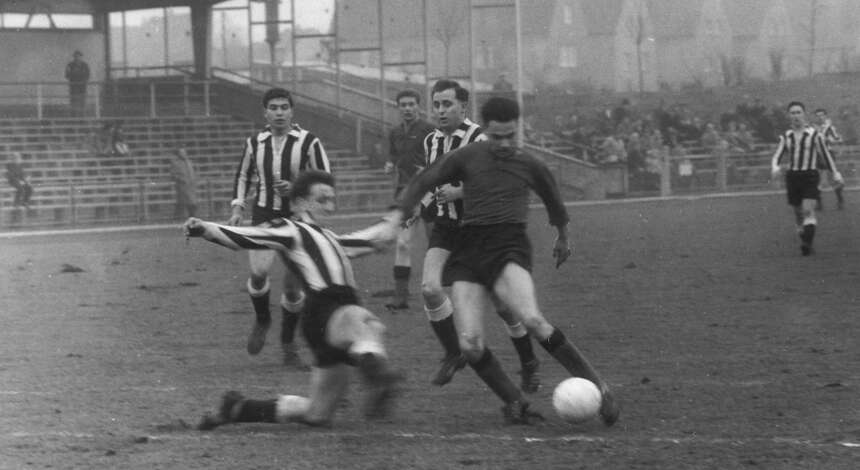
From the archives: 65 years ago - Another victory at last
When the Bayer 04 players celebrated Christmas in 1960, they spent the winter in second place in the Oberliga West 2 on 20 points - but already five points behind leaders Schwarz-Weiß Essen. However, coach Erich Garske's team are struggling to get back on track in the new year. A goalless draw against Bonner FV at home at the Ulrich Haberland Stadium was followed by a 2-1 away defeat in Erkenschwick. The following home game also yielded just one point. As a result, the team's promotion ambitions dwindled to a minimum, as the gap to the coveted spot has now grown to a challenging ten points.
Show more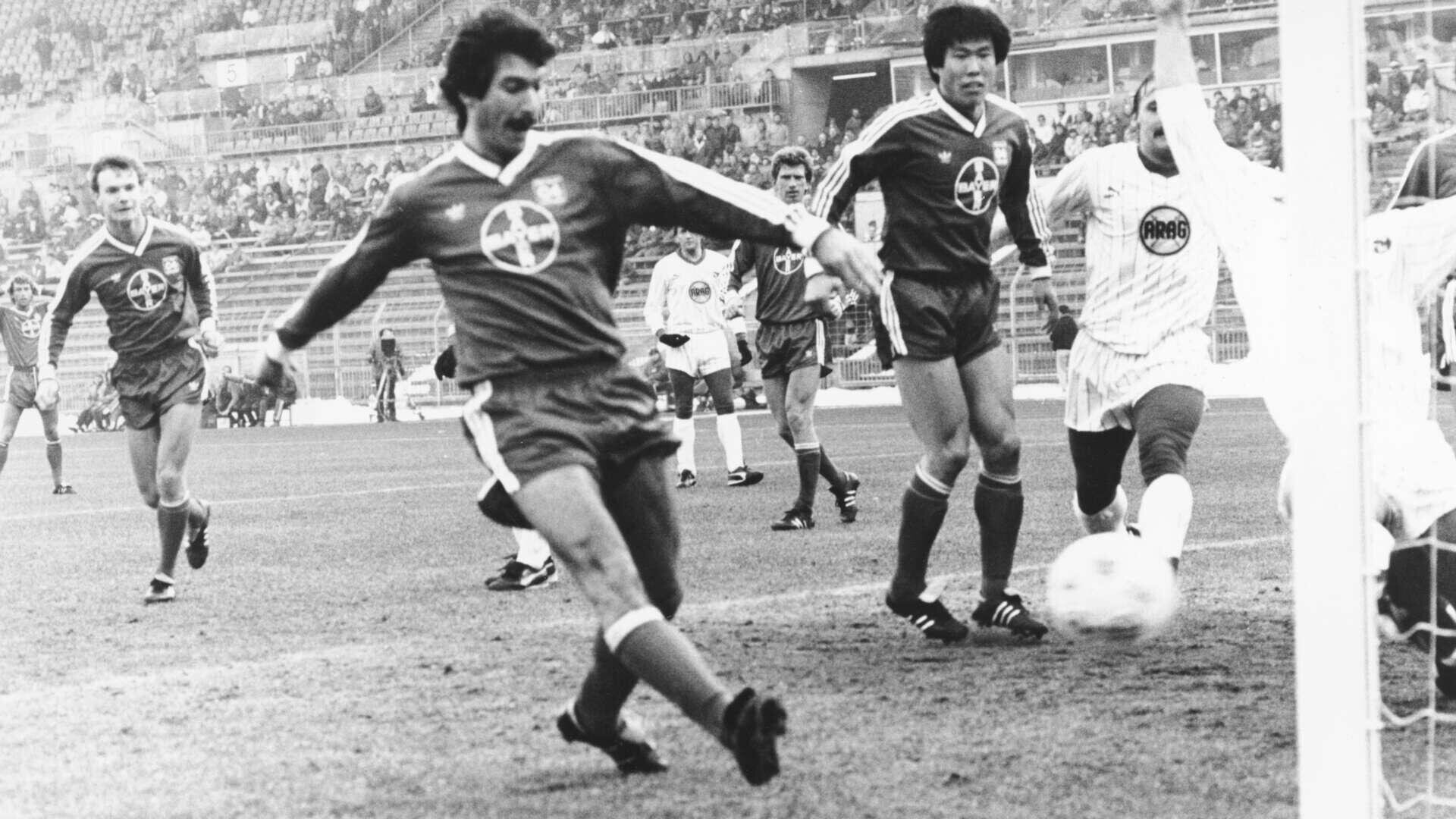
Goals of the month: From Waas to Tapsoba
In this video you can see impressive and important goals in Bayer 04 history from the month of February. It's not always about the beauty of the goals, but also a reminder of special games and players.
Show more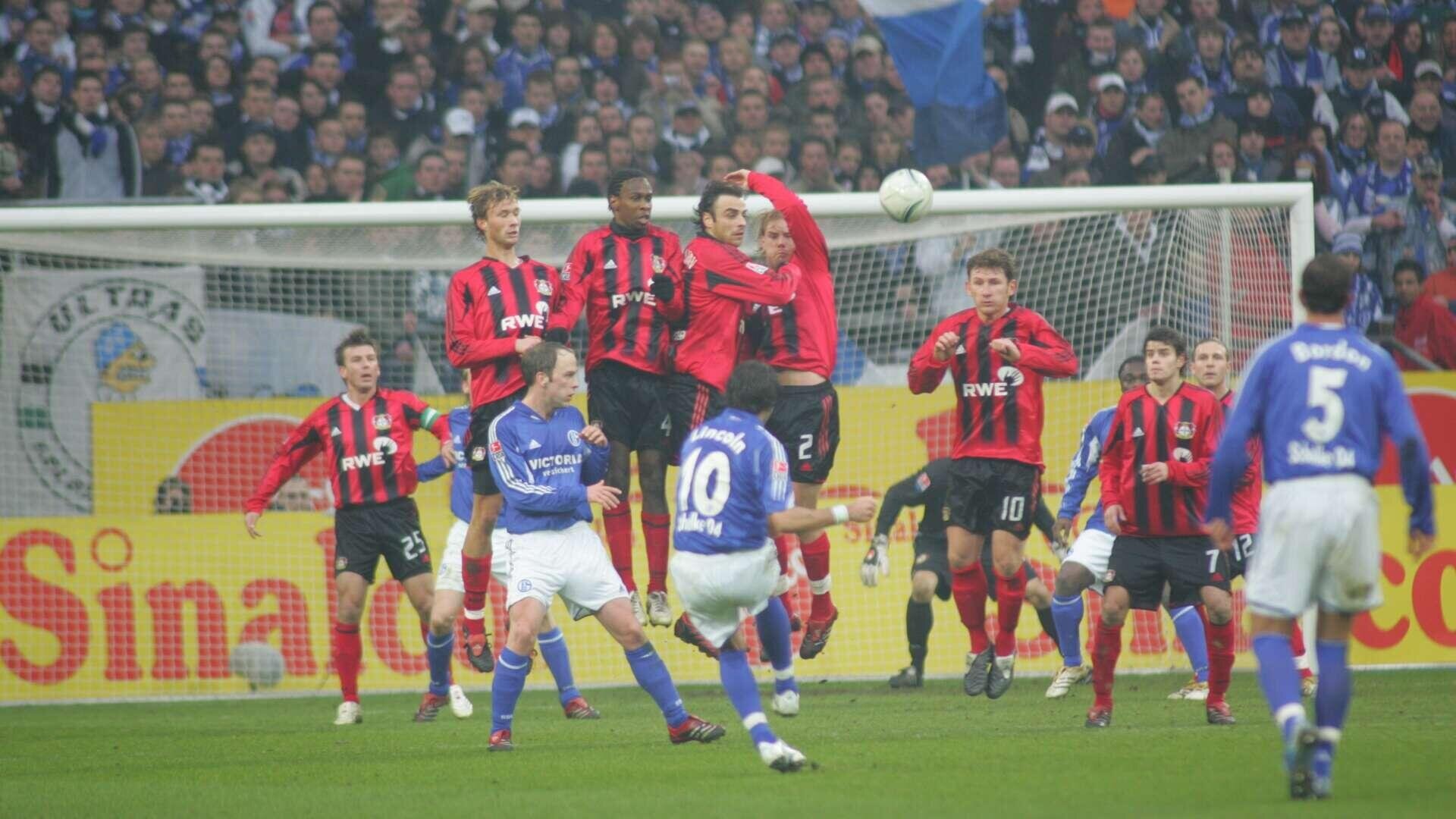
Match of the month: 20 years ago - A game of goals galore
It is 11 February 2006 and Schalke 04 and the Werkself kick off at 3.30 p.m. in a match that ends up being historic - at least from a Bayer 04 perspective.
Show more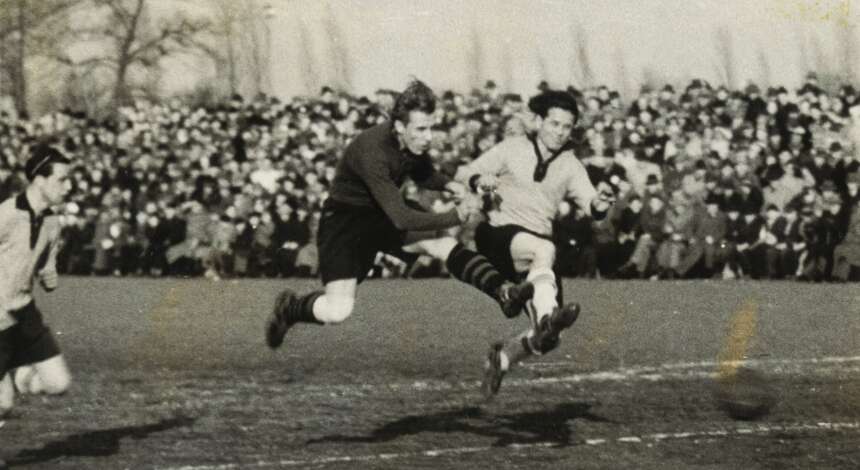
History: 75 years ago - The 1950/51 season (February)
As league leaders, the Werkself welcomed the relegation-threatened team from Rhenania Würselen. On 4 February 1951, 5,000 spectators line the touchlines despite the Sunday carnival parades. And they see a home team that is superior on the pitch. Without Theo Kirchberg, who was ill, and Emil Becks, who was suspended, the hosts attacked the opposing goal from the start. Battling against a strong wind in the first half, Bayer 04 created chance after chance, but were repeatedly thwarted by the Würselen goalkeeper. With the score at 0-0 at half-time, Karl Heinz Spikofski tried his luck on 55 minutes and hammered the ball into the opposition net from 20 metres out. Rhenania can no longer counterattack. The siege of the Würselen penalty area continued right to the end, but the game ended in a narrow 1-0 win.
Show more